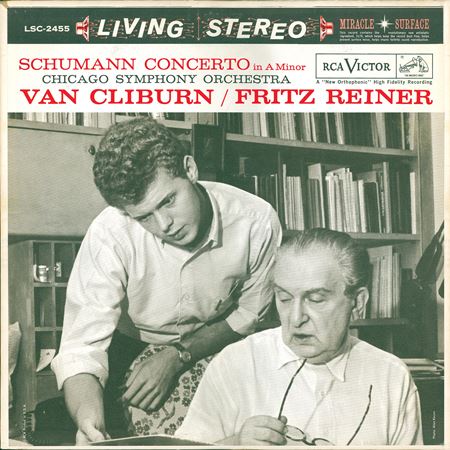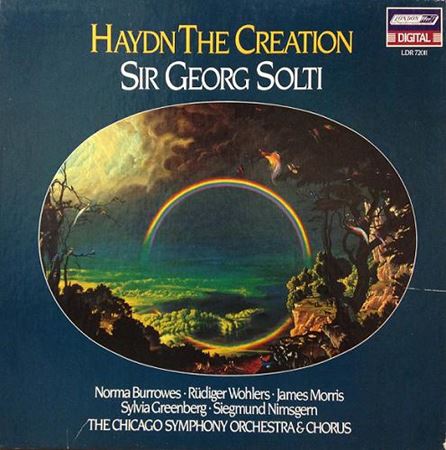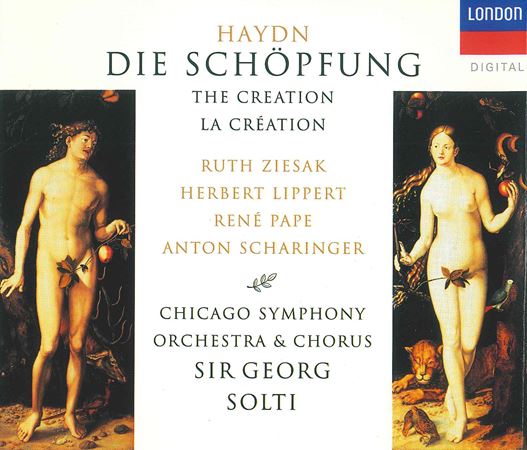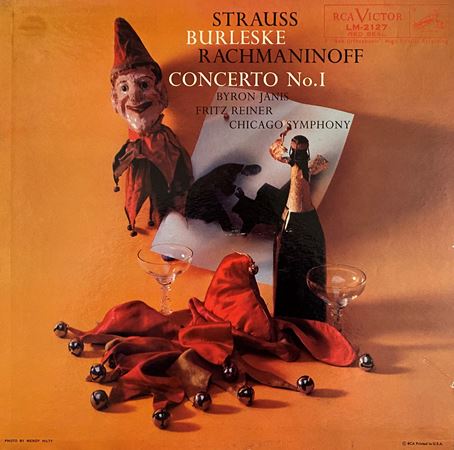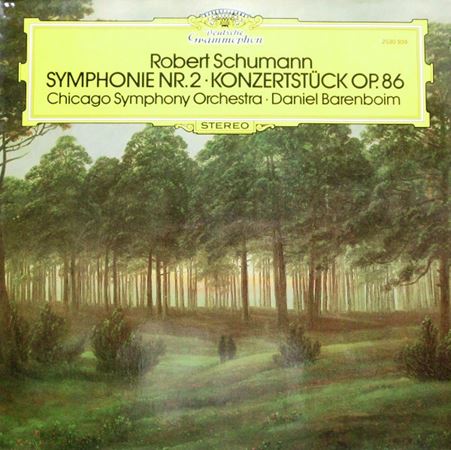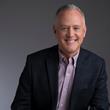David Schrader has frequently performed as a soloist — on the harpsichord, organ, piano and fortepiano — with the Chicago Symphony Orchestra.
William Burlingham
The Chicago Symphony Orchestra’s commercial recording legacy began on May 1, 1916, when second music director Frederick Stock led the Wedding March from Mendelssohn’s A Midsummer Night’s Dream for the Columbia Graphophone Company. The Orchestra has since amassed an extraordinary, award-winning discography on a number of labels — including Angel, CBS, Deutsche Grammophon, Erato, London/Decca, RCA, Sony, Teldec, Victor and others — continuing with releases on the in-house label CSO Resound under tenth music director Riccardo Muti. For My Favorite CSO, we asked members of the Chicago Symphony family for their favorite recordings (and a few honorable mentions) from the Orchestra’s discography.
Equally at home in front of a harpsichord, organ, piano or fortepiano, David Schrader has appeared with the Chicago, Dallas, San Francisco, and Colorado symphony orchestras and appeared as a featured soloist at four national conventions of the American Guild of Organists. A resident of Chicago, he performs regularly with Music of the Baroque, the Newberry Consort and Bach Week in Evanston. Schrader has also appeared with the Chicago Chamber Musicians, Contempo (formerly the Contemporary Chamber Players), the Chicago Baroque Ensemble and the City Musick. He is a frequent guest on Live from WFMT and is a founding member of Baroque Band, Chicago’s period-instrument orchestra. Schrader recently retired from the faculty of Roosevelt University’s Chicago College of Performing Arts, and, for over 35 years, he was organist at the Church of the Ascension in Chicago.
SCHUMANN Piano Concerto in A Minor, Op. 54
Recorded in Orchestra Hall in 1960 for RCA
Fritz Reiner conductor
Van Cliburn piano
“It is not easy to choose a favorite recording of the Chicago Symphony Orchestra — there exist so many excellent performances by that august body, that to single out a favorite (or more) is a purely personal decision, so here goes! The first recording I ever heard, in my teenage years, was Schumann’s Piano Concerto as recorded by Fritz Reiner and Van Cliburn, made in 1960, when Cliburn was at the height of his fame in the wake of having won the Tchaikovsky Competition in 1958. The performance made such an impression upon me that it became for me a ’model’ performance. The coordination of soloist and conductor is spot on, and the piece leaves one with a marvelous feeling of exultation at the end of the final movement."
HAYDN The Creation
Recorded in Orchestra Hall in 1981 for London
Sir Georg Solti conductor
Norma Burrowes soprano
Sylvia Greenberg soprano
Rüdiger Wohlers tenor
Siegmund Nimsgern bass-baritone
James Morris bass
Chicago Symphony Chorus
Margaret Hillis director
HAYDN The Creation
Recorded in Orchestra Hall in 1993 for London
Sir Georg Solti conductor
Ruth Ziesak soprano
Herbert Lippert tenor
René Pape bass
Anton Scharinger bass-baritone
Chicago Symphony Chorus
Margaret Hillis director
“When I came to Chicago in 1980, I was a parish organist (as I would remain for 35 years) and was looking for work in addition to that post. With the audacity of youth, I wrote a letter to Sir Georg Solti saying that I was a professional organist and also a continuo player. Sir Georg was initiating a period of interest in the works of Haydn, and the next-to-last oratorio, The Creation (Die Schöpfung) was in the offing for the fall of 1981. Shortly before the rehearsals were to begin, the CSO’s erstwhile personnel manager, Radivoj Lah, called me and asked if I was able to play from figures — I responded in the affirmative, and the first rehearsal was my audition! Sir Georg said to me on his way to the podium, ’Play everything, but don’t play the moon!’ From those sessions (piano rehearsals with soloists, etc.) Solti took a kindly interest in me, and I was later engaged to play continuo for Bach’s B minor mass and Saint Matthew Passion and Handel’s Messiah. Sir Georg was known to give young artists a chance, as it were, and I also was invited to play a Handel organ concerto in January 1983 and one by Haydn in October 1987.
"The Creation speaks deeply to me of a composer who had completely mastered his craft and was now trying out a new style of oratorio, written under the influence of the performances of Handel’s oratorios while Haydn was in England. One of the great moments occurs toward the beginning of the piece, when light is created. Haydn was so concerned about the effect of this moment that he did not actually perform it until the work’s dress rehearsal! To me, it’s one of the great moments of music!
"Having recorded The Creation with the CSO and Chorus once, ten or so years later, Solti returned to the work with some substantial changes. First of all, instead of using the harpsichord for continuo, the maestro went with the fortepiano the second time.
"As a student at the Indiana University School of Music (it hadn’t become the Jacobs School of Music yet), I had classes with Professor A. Peter Brown, a noted classical-era scholar with an emphasis on Haydn and others. When Sir Georg recorded The Creation the second time, he used a newly completed edition by Dr. Brown, whom I was able to greet and thank for his new contribution to The Creation. In both recordings, the soloists were most interesting, especially the tenors. I remember during the first recording sessions that Sir Georg cautioned Rüdiger Wohlers, not to overuse his voice — he said, sub rosa (confidentially), to Herr Wohlers, ’Leise, Rüdiger, das ist kein Siegmund’ (Quiet, Rüdiger, that’s no Siegmund)."
RACHMANINOV Piano Concerto No. 1 in F-sharp Minor, Op. 1
Recorded in Orchestra Hall in 1957 for RCA
Fritz Reiner conductor
Byron Janis piano
“Among other recordings that stand out for me are three other pieces. The first is Rachmaninov’s First Piano Concerto with Fritz Reiner conducting and Byron Janis (a student of the well-known teacher, Adele Marcus) as soloist. Again, the coordination between the soloist and conductor is exemplary, and the Orchestra shows itself as a virtuoso ensemble. Janis’s playing is so clear that the listener can almost imagine seeing the score on an overhead projector within his/her ears."
RIMSKY-KORSAKOV Sheherazade, Op. 35
Recorded in Orchestra Hall in 1960 for RCA
Fritz Reiner conductor
Sidney Harth violin
“Possibly some of the most perfect orchestral playing that I’ve ever heard is in the 1960 recording of Rimsky-Korsakov’s Sheherazade. I can scarcely think of any other performance of this work that is better. Sidney Harth’s expert solos from his concertmaster’s chair are quite worthy of a performance by Reiner and the CSO."
SCHUMANN Konzertstück for Four Horns in F Major, Op. 86
Recorded in Orchestra Hall in 1977 for Deutsche Grammophon
Daniel Barenboim conductor
Dale Clevenger horn
Richard Oldberg horn
Thomas Howell horn
Norman Schweikert horn
"Finally, I’d like to give a hearty cheer for Daniel Barenboim’s recording of Schumann’s Konzertstück with Dale Clevenger, Richard Oldberg, Thomas Howell and Norman Schweikert. This open, good-natured work is given a triumphant reading by the horns and by the Orchestra!
"There are so many great performances recorded by the CSO, and these are only a few works that have captivated me over the years. I’m sure that this fine tradition will continue as time goes on."
MFC-036
